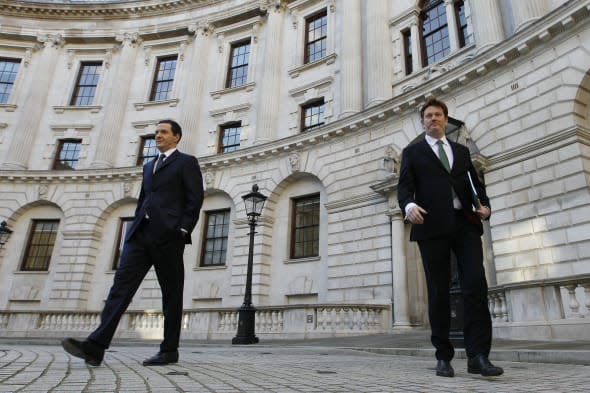Autumn Statement 2014: What the papers say

The overwhelming reaction to this Autumn Statement is that it has been a hugely political enterprise. While there has been much support for the changes to stamp duty, there's a widespread recognition that it was just one of the announcements intended to please voters in the run-up to the general election. Meanwhile, there were a fair number of commentators who highlighted the one issue that Osborne was keen to downplay - the fact he has missed his target on the deficit.
Stamp duty
Many of the papers led with the news on Stamp Duty, with The Telegraph pointing out that it will leave anyone buying a home worth less than £937,500 better off, and including one comment that this is the one measure from the announcement that will live on in the memory.
The Sun said the Stamp Duty reforms were a 'potential general election master stroke.' It suggested that not only would it mean a major tax break, but that it could also fuel a house price boom in time for the election. To add to the mix, it said he was paying for it "By becoming Robin Hood – taking huge amounts more tax from those evil dodging banks and multinational tech firms like Google, plus of course more from the mansion owners in higher stamp duty."
Politics
BBC Political Editor Nick Robinson also pointed out the populist nature of these changes, saying: "He didn't have one eye on the election: he had both eyes on the election". He highlighted the mix of measures focused on issues which had clearly disturbed the electorate - including hard-hitting tax-avoidance measures, a tax on banks, and reforming Stamp Duty to the point it seemed to resemble a mansion tax. He added: "This is real electioneering."
The Guardian highlighted that such was the political leaning to the Budget that the Liberal Democrats were keen to distance themselves from it. It hasn't gone unnoticed that Nick Clegg excused himself from the House entirely, to attend vital functions in Cornwall. It ran with comments from Vince Cable, which highlighted the differences in the balance between spending cuts and taxes that the two parties of the coalition wanted to use to reduce the deficit. Cable, it said, is known to think that achieving it through cuts alone could severely damage departmental spending.
Fudging the figures
Other commentators were keen to point out the harsh economic truth that had been drowned out by electioneering. While Osborne focused on the forecast that he would be running a budget surplus in the same year he predicted in March, BBC Economics Editor Robert Peston highlighted that he was actually admitting to missing his target dramatically on the budget deficit.
He pointed out that new the estimate of the deficit for this year was £91.3 billion (up from £86.4 billion), and that it had also been revised upwards for next year. He highlighted that this wasn't a major concern for the markets, but it was more of a political problem for a government that wanted to stand on its reputation for fiscal control.
The Independent, meanwhile ran with what it said was 'reading between the lines of the budget'. It translated Osborne's assessment of the economy as: "More pain now, jam tomorrow. I've missed all my targets and I'm going to miss some more, but after two more years I will start to hit them. Honest."
Autumn Statement on AOL Money
Autumn Statement 2014: what it means for you
Autumn Statement 2014: Winners and losers
Autumn Statement 2014: what the experts think
{C}




